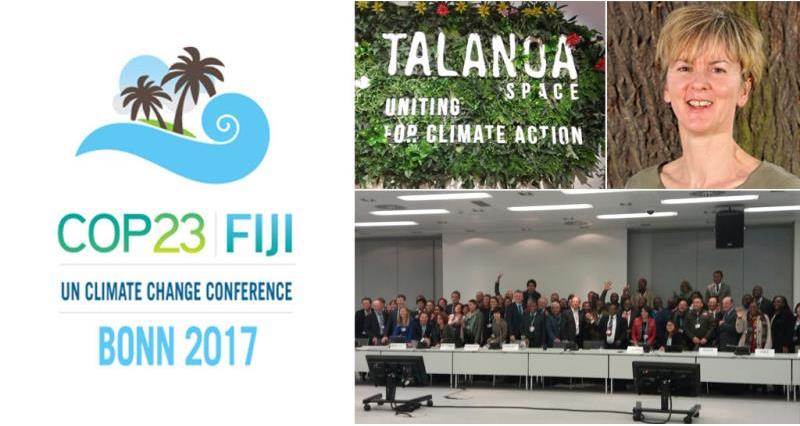She writes:
Wananavu! Wonderful! Wunderbar!
After long hours of debate, finally, on Monday evening, representatives of the world’s government reached consensus on the next step for agriculture in these international negotiations.
They agreed that:
- They would move to discussions on implementation so that things start to happen in practice
- There are gaps in their scientific and technological knowledge which they aim to fill over the next three years
The final sign-off hopefully comes at the end of the week, then the hard work really starts.
I’ve had the opportunity to follow these negotiations over the past couple of years and there have been (many, many) times when I’ve wanted to tear my hair out. But this meeting finished with a happy and proud ‘agriculture family’. Many negotiators spoke of their delight at ‘this very exciting moment’ and how they were ‘humbled to be part of this moment’.
Perhaps my feelings are best summed up by a young negotiator attending her first summit who said ‘It can be very easy to lose one’s idealism and let pessimism take hold because it’s so complicated. This can be demoralising but now I’m so happy.’ And the group photo at the end said it all – ‘Taba mada’ (Say cheese) everyone!
Outside of the negotiations, it felt like agriculture was everywhere. Several high-level panels debated the actions required to meet Sustainable Development Goal 2 for zero hunger.
“Climate change is a fundamental threat to the Sustainable Development Goal 2 that aims to end hunger, achieve food security and improve nutrition.” José Graziano da Silva, director general of the Food and Agriculture Organisation
Elsewhere, Ismael Sunga, chief executive of the South African Confederation of Agricultural Unions could have been speaking for the NFU when he called for investment in digital infrastructure and in the next generation of farmers, for research to be put into the hands of farmers, and the need to empower farmers and their organisations.
